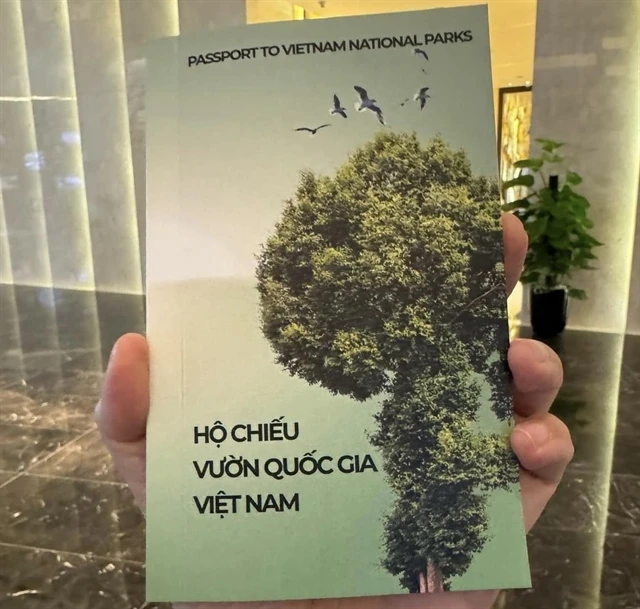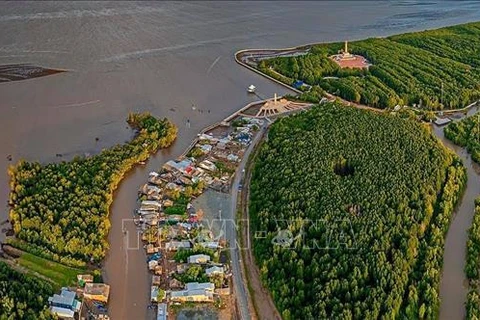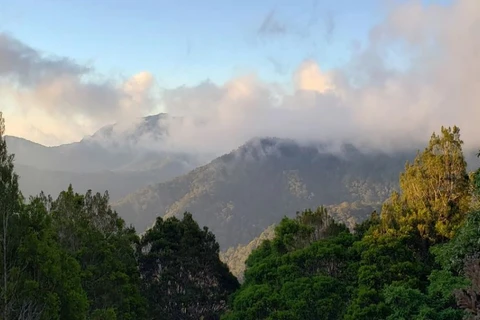
Hanoi (VNS/VNA) - Vietnam has introduced a new National Park Passport, which aims to nurture the development of ecotourism in national parks and nature reserves.
Ownership of the passport aims to motivate tourists to explore and appreciate the country's amazing forest ecosystems.
It is expected to gradually establish a sustainable financial mechanism, enhance tourism infrastructure in national parks and nature reserves and attract public interest in the sustainable values of ecosystems.
The National Park Passport initiative is one of the important contents in the Memorandum of Understanding between the Forestry Department under the Ministry of Agriculture and Rural Development and Suntory PepsiCo Vietnam signed recently within the framework of the Public-Private Partnership Forum for Ecosystem Services Development.
Initially, the National Park Passport will be implemented in 34 national parks, within the special-use forest system which offer specific tourism activities.
Both domestic and international tourists can obtain the passport in either paper or electronic format.
Passport holders will have the opportunity to receive benefits, rewards and discounts when they visit these national parks (terms and conditions apply).
Tourists holding the National Park Passport will gain numerous benefits, including improvement health and mental well-being through nature experiences, enhancement of knowledge and inspiration for nature conservation, opportunities to win rewards and receive service discounts when participating in ecotourism activities at national parks and broader promotion of ecotourism activities through apps, the passport booklet and media channels, resulting, it is hoped, in increased tourist numbers and enhanced visitor engagement.
Minister of Agriculture and Rural Development, Le Minh Hoan, said "I hope these passports will bring new resources to support forest rangers and forest management forces.
“We need to develop and enhance public-private co-operation to extend the value of our national parks. I believe that with the National Park Passport, we will preserve our forests in a new way, enriching not just in monetary terms but also emotionally and spiritually."
During the forum, the Forest Protection Department and Suntory PepsiCo Vietnam also signed a Memorandum of Understanding to promote large timber planting and native tree planting combined with medicinal herbs, aiming to improve local livelihoods and increase carbon absorption, environmental protection and water resource regeneration.
The programme aims to plant and enrich nearly 250ha of forests, particularly in upstream and protective forest areas nationwide.
The parties will collaborate on policy development, communication and raising awareness about nature conservation, biodiversity, ecosystem roles and water protection.
Suntory PepsiCo Vietnam is among the first companies to strategically cooperate with the forestry sector in sustainable forest development, aiming for water conservation and carbon neutrality.
Tran Trần Quang Bao, the department’s head, said: "Our overarching goal is to establish forestry as an economic-technical sector, managing, protecting and sustainably utilising forests ensuring broad, equitable participation of all economic sectors in forestry activities is crucial.”
According to the department, Vietnam has over 14.86 million hectares of forest, with a coverage rate of 42.2%. Vietnamese forests are home to tens of thousands of wildlife species, while in 2023, national parks received approximately 3.4 million visitors, generating over 300 billion VND (11.75 million USD) in income.
Vietnam is considered one of the 12 countries with the highest biodiversity globally.
To date, the country has established 167 special-use forests, including 34 national parks, 56 nature reserves, 14 species or habitat conservation areas, 54 landscape protection areas and numerous scientific research and experimental forests./.






















